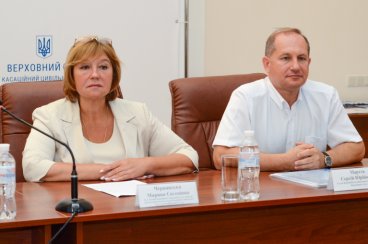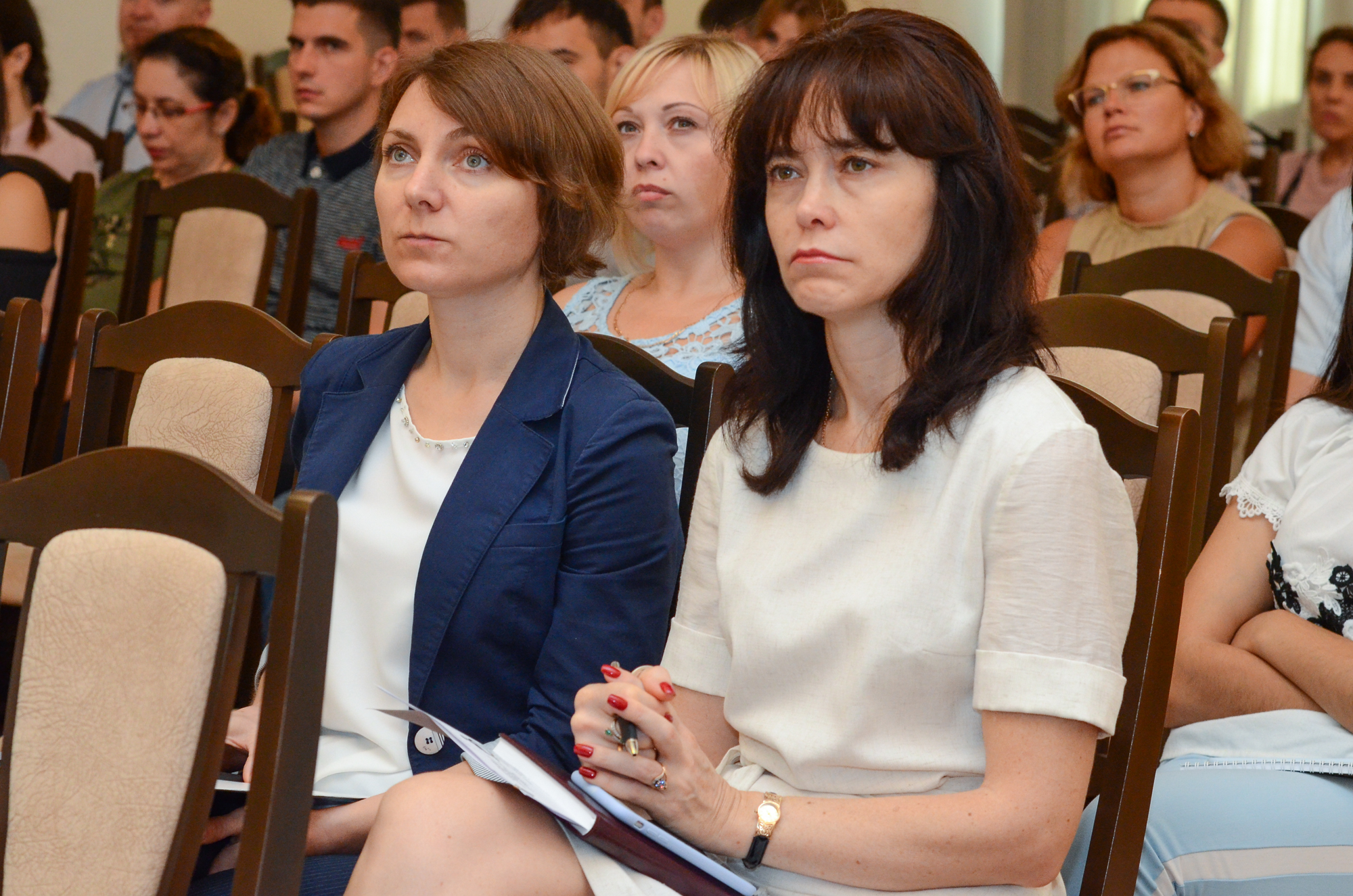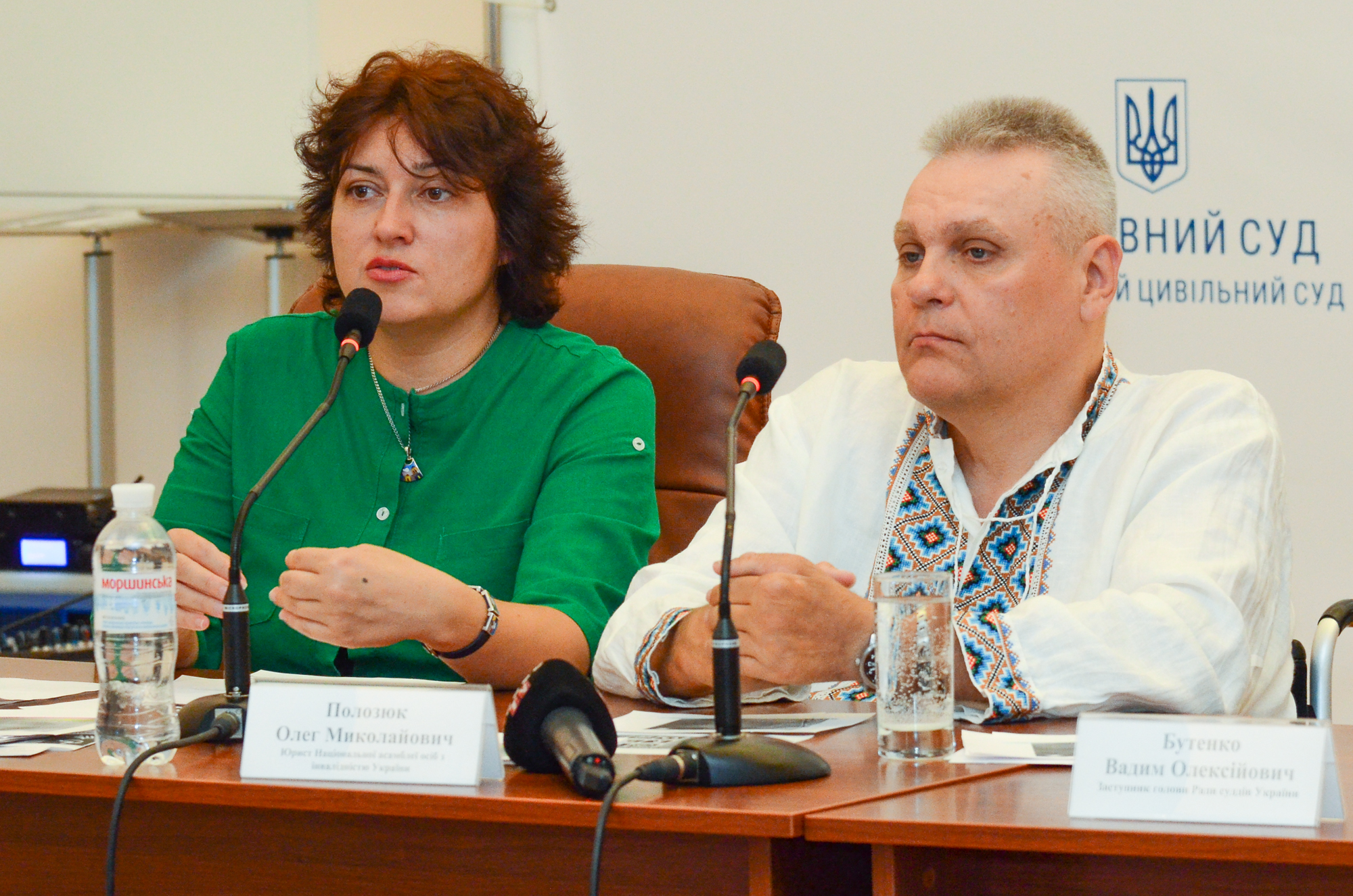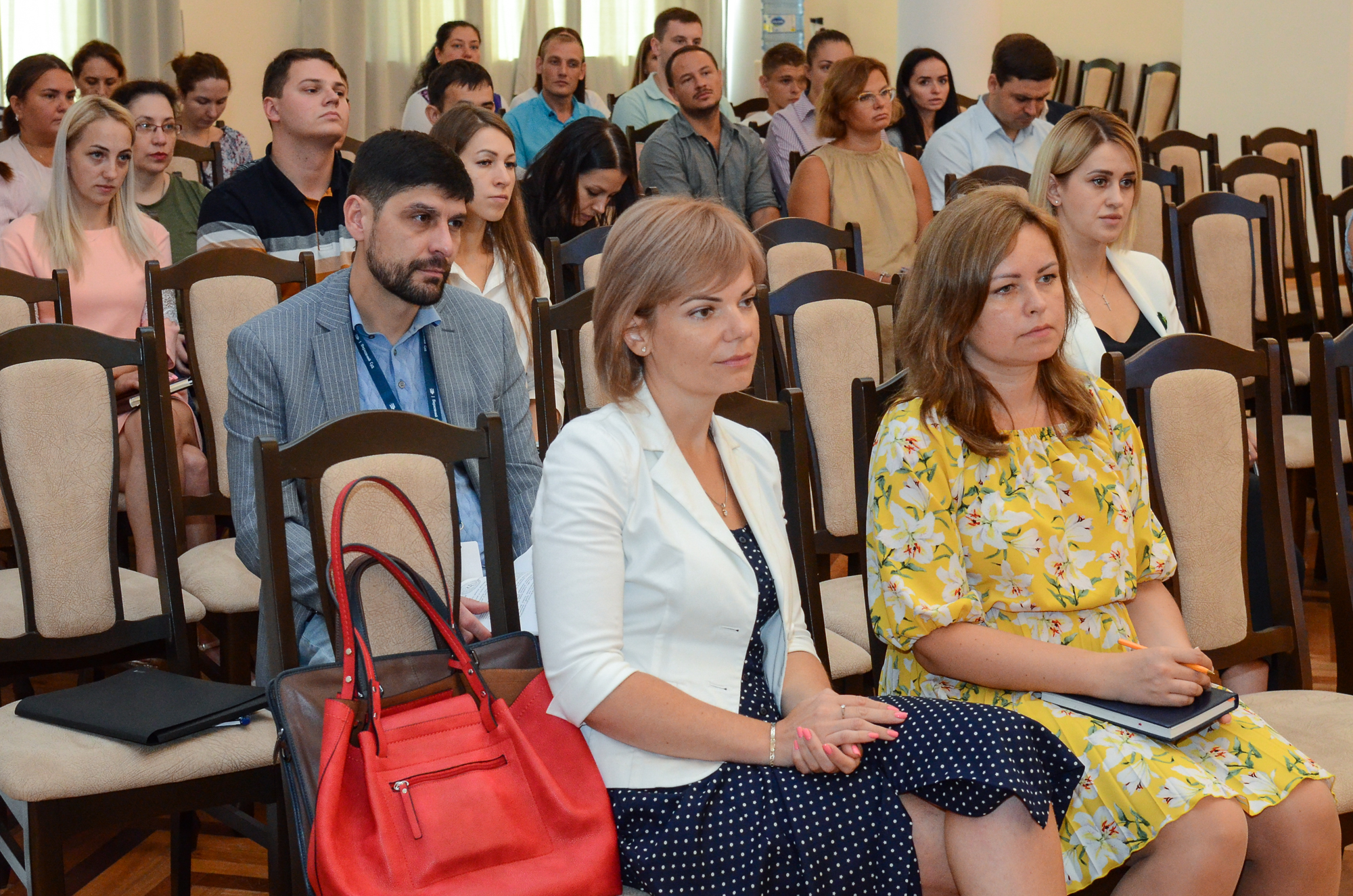Contact center of the Ukrainian Judiciary 044 207-35-46

Maryna Chervynska, the Secretary of the Second Chamber of the Civil Cassation Court within the Supreme Court, put emphasis on this fact at training seminar for judges and officials of the Civil Cassation Court, judges and officials of local courts of Kyiv and its oblast “Inclusive Court: Basic Notions and Ways of Development” on 9 August 2019 in the house of the Court. The event was organized by the All-Ukrainian Public Organization of Handicapped “Advocacy Association of the Disabled”, Public Organization “Institute of Judicial Management”, All-Ukrainian Public Organization “National Assembly of Disabled Persons of Ukraine”.
Judges of the Civil Cassation Court within the Supreme Court Serhii Martiev, Iryna Dundar, Hanna Kryvtsova and officials of the Court Secretariat have also participated at the event.
Maryna Chervynska remarked that the issue of ensuring the confident and comfortable social life guaranteed by the Constitution of Ukraine, particularly of the disabled and those, who because of other reasons were physically challenged, was especially acute while the direct contact of an individual with the state represented by its bodies.
The Secretary of the Judicial Chamber drew attention to the fact that it also concerned courts, most of whose premises at that time were not equipped in a proper way. Unfortunately, the generally accepted standards of barrier-free environment were not observed in districts or oblasts, as well as in the capital. According to Mrs. Chervynska, one of the reasons of such situation was represented by the location of courts in improperly equipped premises.
It was noted that usually it was more complicated to adapt a building or territory to certain requirements, rather than to take them into account while constructing new premises. For example, the building of the Civil Cassation Court within the Supreme Court was a historical monument constructed at the beginning of the last century as the premises of Nicolas Artillery College (1914–1918).
However, Maryna Chervynska underlined that the Civil Cassation Court had always cared, cared and would care about disabled persons. Thus, the Court’s Citizens Reception was situated at one-floor building at the level of the pavement; the main building was equipped with ramps, special places in restrooms; the best places at parking space were provided for the disabled.

She also noted about the necessity to minimize the disabled persons’ need to apply to court through the joint efforts of all stakeholders, particularly regarding social welfare, the exercise of right to benefits, etc.
“We want to hope that the need to protect such an apparently fundamental right of a disabled person as right to specially reduced fares at public transport at the SC level would fade” – the speaker noted and drew attention to the SC resolution in case No. 711/6330/17-ö of 20 June 2018. The Court reviewed this case under the claim of Cherkasyavtotrans Private Joint-Stock Company. Under the results of the review, the Court held to recover 1000 UAH of moral damage provoked by the bus driver’s refusal to ensure reduced fares in the transport.
Maryna Chervynska thanked the meeting organizers for relevant and useful civil initiative. She summarized that such events destroyed physical barriers, as well as, primarily, barriers in consciousness and formed the type of mentality, which gave individuals the reasons to position themselves as civilized people.

While the training, the Deputy Chair of the Territorial Department of the State Judicial Administration of Ukraine in Kyiv Nataliia Chumak and the lawyer of All-Ukrainian Public Organization “National Assembly of Disabled Persons of Ukraine” Oleh Poloziuk presented their lections.
The first part of the training was devoted to following issues: general notions about the disabled and disability; right to the status of a disabled person; access to justice as a social benefit; inclusion; ethics of conversation – skills of a court official. During the second part, the participants talked about barrier-free court; access to court (transport, informational, architectural one); universal design and smart adaptation of environment; ways of building an inclusive court.
Oleh Poloziuk underlined that the seminar took place in a 100-year building. In such premises it was impossible to ensure the complete access for disabled people without damaging the architectural monument. And since he used a wheelchair, he needed the assistance of the court officials. He told that the access could be ensured by means of assistance provided by trained staff.
Judge of the Civil Cassation Court within the Supreme Court Serhii Martiev drew attention that in April this year new State Building Norms Â.2.2-40:2018 regarding the inclusion of buildings and premises had come into force. Thus, now, for example, there is no need to get consent of a house residents or authorities issuing the permitting decision to set ramps. Presently, the right side of the building of the Court is being refurbished; representatives of the Court Secretariat noted that the premises were reconstructed in accordance with the new State Building Norms.
On that day a retreat of the Working group on ensuring the access to court and judicial procedure for the disabled and other physically challenged groups of people in Kyiv took place in the Civil Cassation Court within the Supreme Court.
